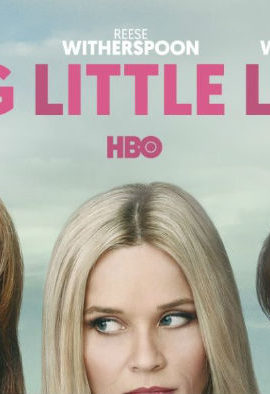TV Reviews

Big Little Lies is one of the most unique shows on television today. It stars three well-known actresses — Reese Witherspoon, Nicole Kidman and Shailene Woodley — and it celebrates their flawed but powerful characters. The series was adapted from the Liane Moriarty novel and was created by David E. Kelley, who previously brought the wonderfully quirky Ally McBeal to life in the Fox dramedy.
These three main characters are all mothers whose families are as rich as their lives are complex. Reese Witherspoon stars as Madeline Martha Mackenzie, a wonderfully complex character who is pushing for a controversial play to be shown in the local community. She’s a woman who can stay angry with those in her way (“I love my grudges. I tend to them like little pets,” she says) but she’s also a woman whose fragile relationship with her older daughter keeps her anxious about the future. When her daughter wants to move out of the house to live with her father, Madeline laments “She wouldn’t leave if she knew I had cancer.” As her husband (Adam Scott) reminds her, she doesn’t have cancer.
Kidman co-stars as Celeste Wright, a mother of twins whose relationship with her abusive husband Perry (Alexander Skarsgård) is fraught with tension and violence. The third lead is Jane Chapman (Shailene Woodley), a single mother who recently moved into town with her son.
In the first episode, these three mothers bond as they send their respective children to first grade together. Jane is new to the area so Madeline welcomes her into the community. However, when the daughter of a fellow mother (Laura Dern) accuses Jane’s son Ziggy (Iain Armitage) of grabbing her throat, the community becomes embroiled in a tricky situation. But the story doesn’t settle there.
Instead, it becomes a much more complex look at the lives of these wives and mothers. In flash-forward scenes, we hear that someone is eventually murdered at a school fund-raiser but the victim and the assailant aren’t revealed until the final episode.
The show soaks in the lives of their characters, pausing to examine their relationships. The dichotomies are hard to miss. Some of the relationships are fueled by passion while others lack it. And instead of seeing characters as one-dimensional, Kelley crafts the seven-episode limited series to show many of them from different perspectives. Perry, for one, is an unabashedly violent husband but he’s a father who spends much of his time — when he isn’t travelling — with his two boys.
Celeste’s relationship with him is a complicated one and during quiet therapy sessions, she reveals why she — an intelligent, self-aware and knowing woman — remains with him.
The program has big moments — major revelations and big twists — but its greatest asset is its delicacy with the smaller moments that define who these characters are. Jane’s relationship with her son, for one, is felt more deeply than it is seen. She trusts her son’s innocence because she knows him and they’ve been through a lot together. That history isn’t fully revealed but it’s understood in the dialogue and the way the actors play off each other.
Jean-Marc Vallée, who previously directed Witherspoon and Dern in the Oscar-nominated drama Wild, took on the directorial duties for all seven episodes here. He seemingly understands this material as well as the cast and the show works because of it. It isn’t easy to create such an intricate world but with a cast that is led by a grand performance from Witherspoon and so many other worthy actors (including the extraordinary Kidman), this show really establishes itself as an insightful and profound look at the lives of ordinary women living in a startling world of power and privilege.
John Hanlon is our film and television critic. He can be followed on Twitter @johnhanlon and on Facebook here.
Review by: John Hanlon









